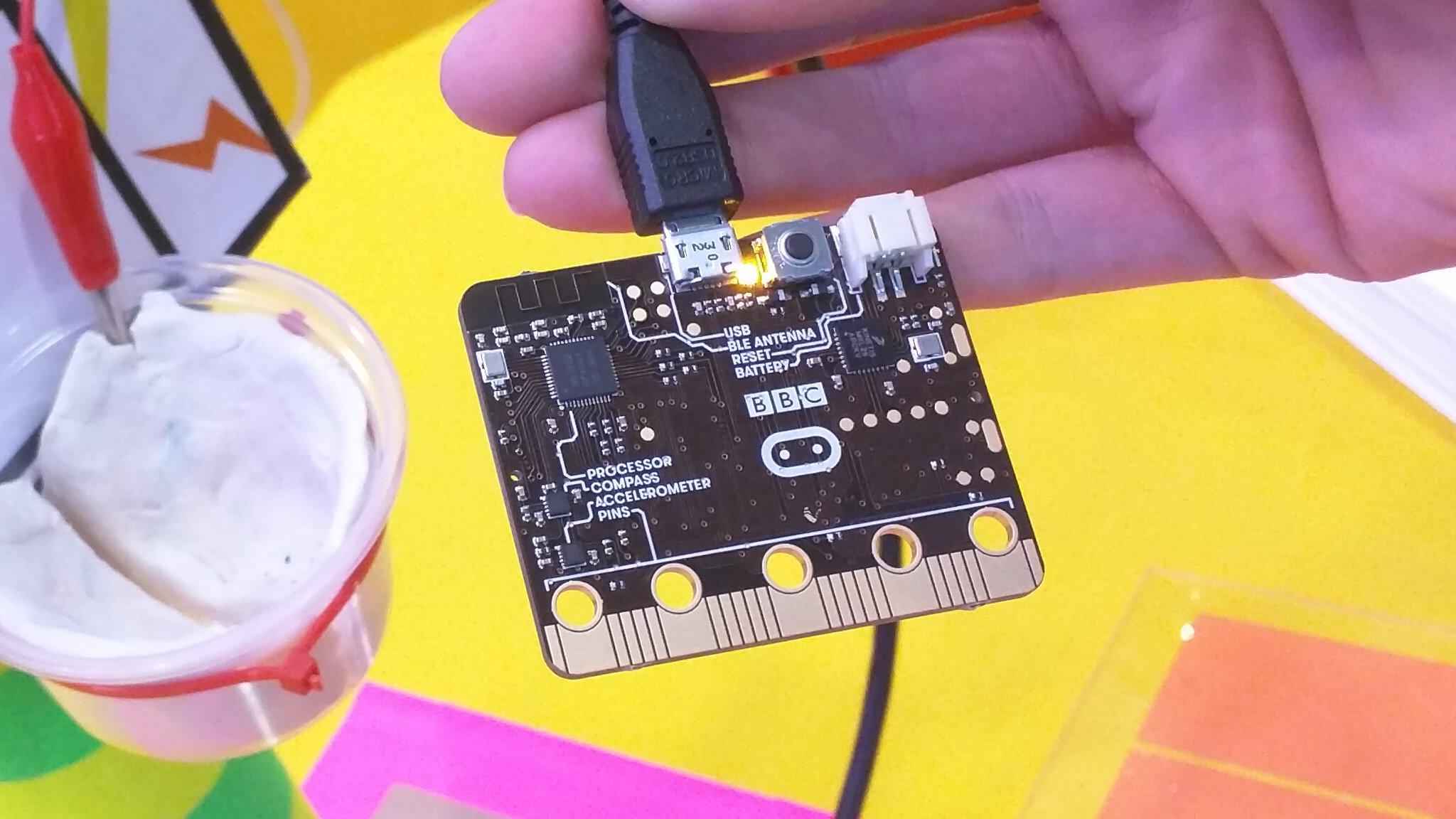BBC Micro Bit mini-computer faces further delay
- Published
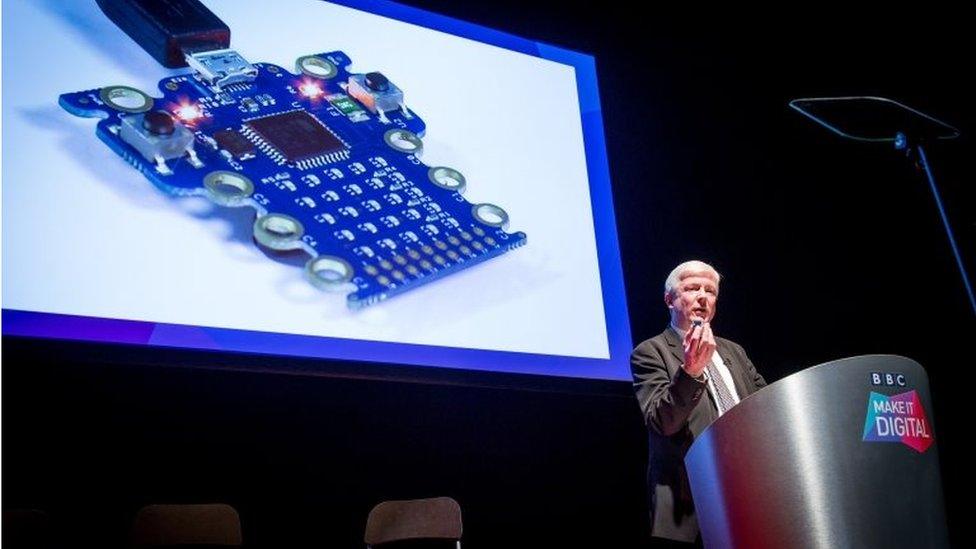
BBC director general Tony Hall unveiled the Micro Bit in March 2015
The BBC has again delayed its release plan for the Micro Bit.
The tiny computer was originally supposed to have been given to one million schoolchildren last October.
The corporation said it now planned to start giving teachers their own units just after the half-term holidays, to help them plan classes.
It added it was "pushing to deliver as many as possible" to pupils before the term's end but could not be more specific about how many or when.
The idea behind the project has been widely praised, but some teachers are concerned they will no longer have enough time to do it justice this school year.
Digital skills
The Micro Bit is designed to run code written by children that will let them display text and patterns on its 25 LEDs and make use of its built-in sensors.
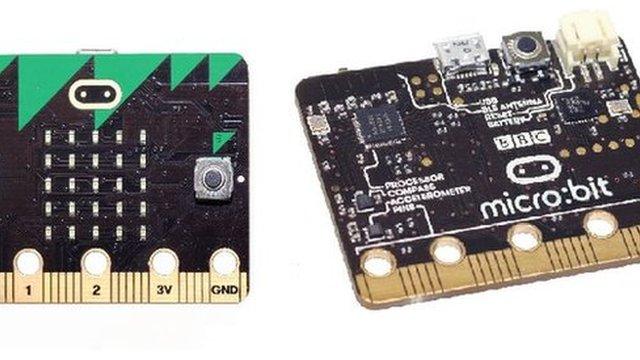
The Micro Bit lacks a slot for a watch battery featured in its prototype but has gained a motion sensor
The idea is that they will be able to create simple games they can play on the device.
In addition, they can physically connect it to other hardware or link it up to a smartphone via Bluetooth to carry out more complex functions.
The BBC has promised to give one to every child in Year 7 or equivalent.
Last September, it revealed a problem with the power supply had caused a delay, adding teachers would receive the device before the end of 2015 and children "early in the new year".
But on Wednesday, at the Bett education trade show in London, the BBC said its timetable had slipped again.
"The main issue has been some fine-tuning," BBC Learning executive Cerys Griffiths said.
"We have created hardware, it's very complex, it's very sophisticated, it's very new.
"What we were really hoping for was that the teachers would get their devices before Christmas.
"But our commitment to teachers has always been that we would get them the devices first to give them time to play and get familiar with them."
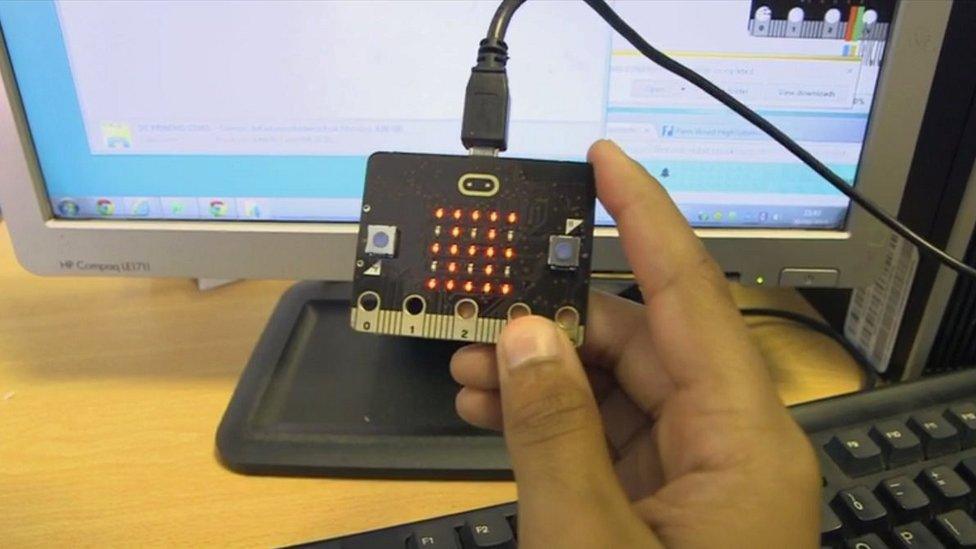
Children can program the micro-computer to show different patterns on its LEDs
Smiley faces
Some schools have been given prototype Micro Bits.
Emily Rowland, a teacher at Manchester's Fairfield High School for Girls, said even the least able of her pupils had been able to use them to show smiley-face graphics.
But she added the delay to the proper rollout was causing concern.
"Some teachers get panicked by the idea that they can only use them for six weeks of the summer term and haven't even seen one yet," she said.
"Quite a lot of schools will struggle to put them in place this summer, and some will have to put it off until the next school year, and then the issue is who do you give the freebies to?"
Another computing teacher, Steve Richards, from Eastlea Community School, in London, had a more positive view of events.
"I understand the frustration of other teachers, because it is this wonderful thing that is slightly out of reach," he said.
"But judging by the kind of things we have been able to do with [the prototypes], it will be worth the wait."
Android app
Although the hardware may be delayed, there is already software available to give children a chance to start coding in advance of receiving their micro-computers:
Samsung unveiled the official Android app for the Micro Bit at the Bett show
Microsoft launched a web-based tool several months ago
To help offset any disappointment, the BBC has also promised to release more copies of the device than it had originally planned, meaning some children in other school years should also receive one.
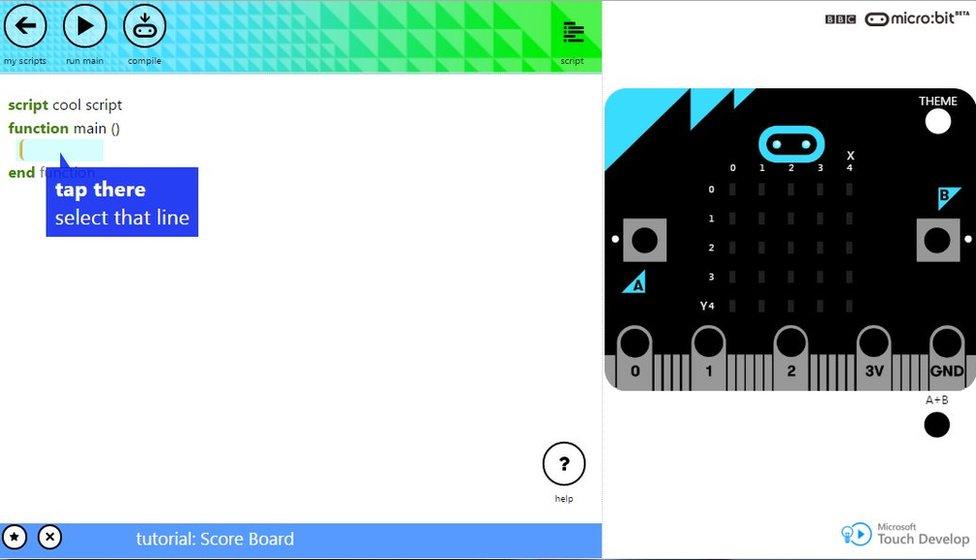
Children can begin writing programs and see a simulation of what they will do via a web tool developed by Microsoft
Ms Griffiths also stressed that just because the Year 7 pupils would receive the Micro Bits later than had originally been hoped, that would not mean their time with the devices needed to be more limited.
"This device was never intended for just for one year," she said.
"Each child will own their own device, so we are hoping they will use them during the summer holidays.
"And we will have loads of activities and stimulus for them to use into Year 8, so it won't be just for one term."
- Published17 September 2015
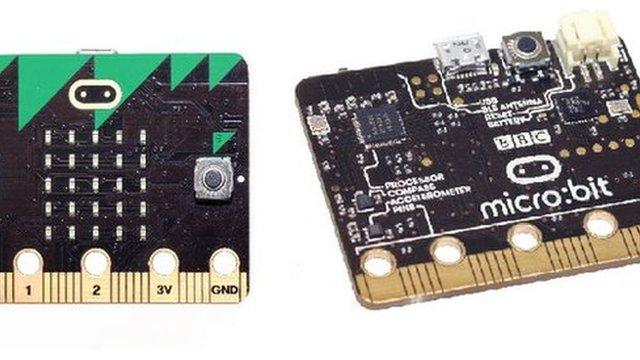
- Published8 July 2015
